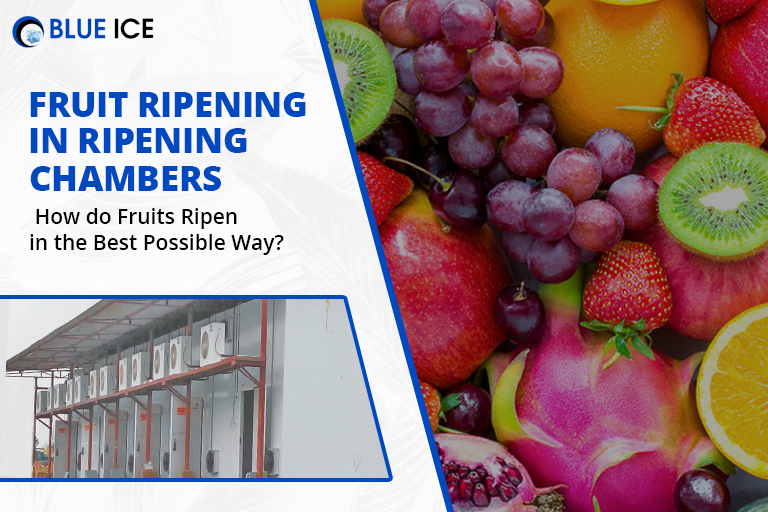
Fruit Ripening in Ripening Chambers - How do Fruits Ripen in the Best Possible Way?
Did you know that most of the fruits that you get actually ripen after they are harvested and picked from the farms? Yes, our farmers usually pick the fruits at specific periods when they know that the fruits will ripen precisely when the product hits the markets and gets bought off by people.
It is a very tricky thing to maintain the fruit quality and ripeness. Often, to ensure the exact degree of ripeness of the fruits during the times of sale, these fruits and sometimes even veggies are ripened, especially in ripening chambers after they are picked.
The ripening chambers usually have precisely monitored and controlled climactic conditions with pre-decided settings to get the exact results.
Let us read more about the ripening chambers and how the fruit ripening chamber manufacturer intended the process of fruit ripening to work.
How does fruit ripening work?
The natural ripening process of fruits only begins when the fruits have completed the growth phase. After that, it is a metabolic process where the fruits undergo chemical reactions and, as a result, physical and internal changes.
The starch in the fruit is converted to fructose through the hydrolysis process. This is how the fruit develops the typical, natural taste that we have and becomes edible.
The process of ripening also changes the appearance of the fruits. For example, tomatoes turn red; bananas turn yellow, mangoes turn yellow, avocados go soft, etc.
Which fruits ripen after picking them?
Only the climacteric fruits ripen after the picking process is done. This means that despite having been picked from the plant or the tree, the fruits still go through the remaining ripening process to reach their full peak of growth.
How do the fruit ripening chambers work?
The fruit ripening chambers are used to ensure that before the fruits reach the supermarket for selling, they don’t end up being ripe and then go stale when it is time to sell them. This is why it is essential to control the process of ripening.
Many ripening chamber manufacturers have developed solutions and products to help control the fruit ripening process.
The fruits are stored in a transparent box in the ripening chambers and then kept under controlled surroundings and conditions. The ripening can be slowed down also if the temperature is adjusted. On the other hand, it can also be accelerated by adjusting the temperature and humidity.
When it comes to modern ripening chambers, they come with the right technical equipment like:
- 1. Cooling systems
- 2. Humidifiers
- 3. Fans and ventilators
- 4. System controls for ethylene, CO2, and nitrogen
These features are there to adjust the temperature, control the humidity, and provide a sufficient supply of air for ventilation. In addition to these, sensors are also attached to measure humidity and temperature.
Conclusion
Fruit ripening is an essential process that the farmers have to get their product through to make sure that when the product hits the market, it is ready for consumption and also ready to be bought fresh without having the challenges of wastage.
Food production and agriculture are sectors where the products are perishable; therefore, keeping the products long-lasting as much as possible is essential.
Frequently Asked Questions:
Q1. What is fruit ripening chamber?
A. Ripening chambers are facilities used to ripen fruits. It is possible to produce fruits with a specified ripeness and standardised taste to ensure consumer satisfaction.
Q2. What is the process of fruit ripening called?
A. Regulation. There are two patterns of fruit ripening: climacteric that is induced by ethylene and non-climacteric that occurs independently of ethylene.
Q3. What chemical is used to ripen fruits?
A. Ethylene gas, acetylene gas liberated from calcium carbide, and ethephon are some of the commercial ripening agents used successfully in the trade and they have been widely studied for their effectiveness in initiating and accelerating the ripening process and their effect on fruit quality and health-related issues.
